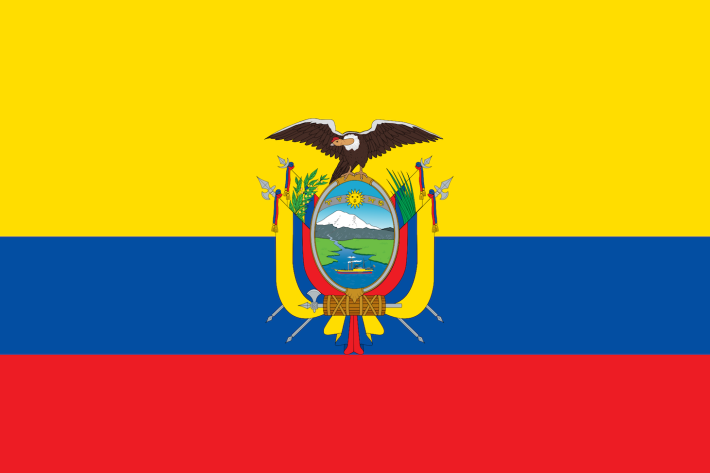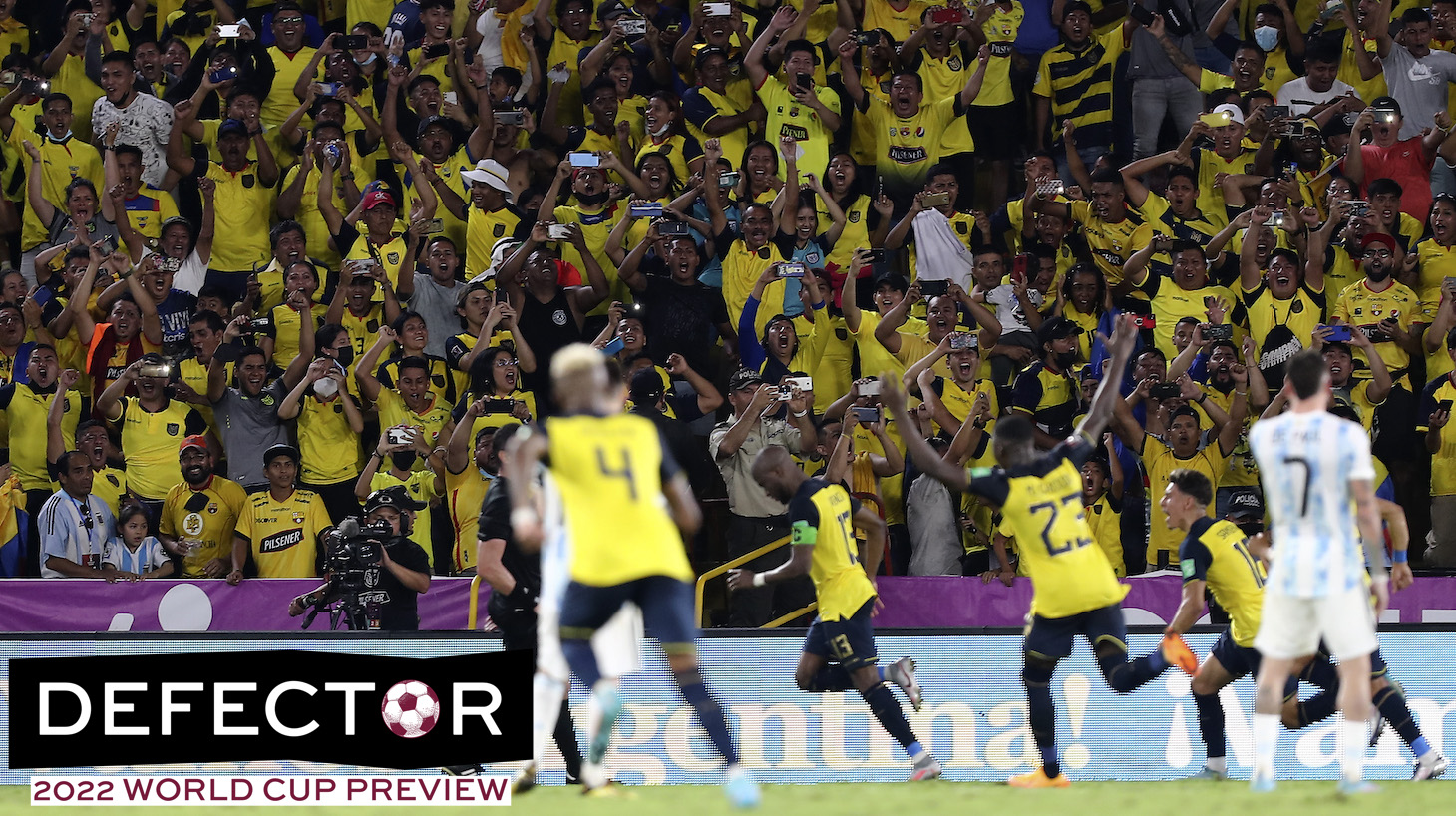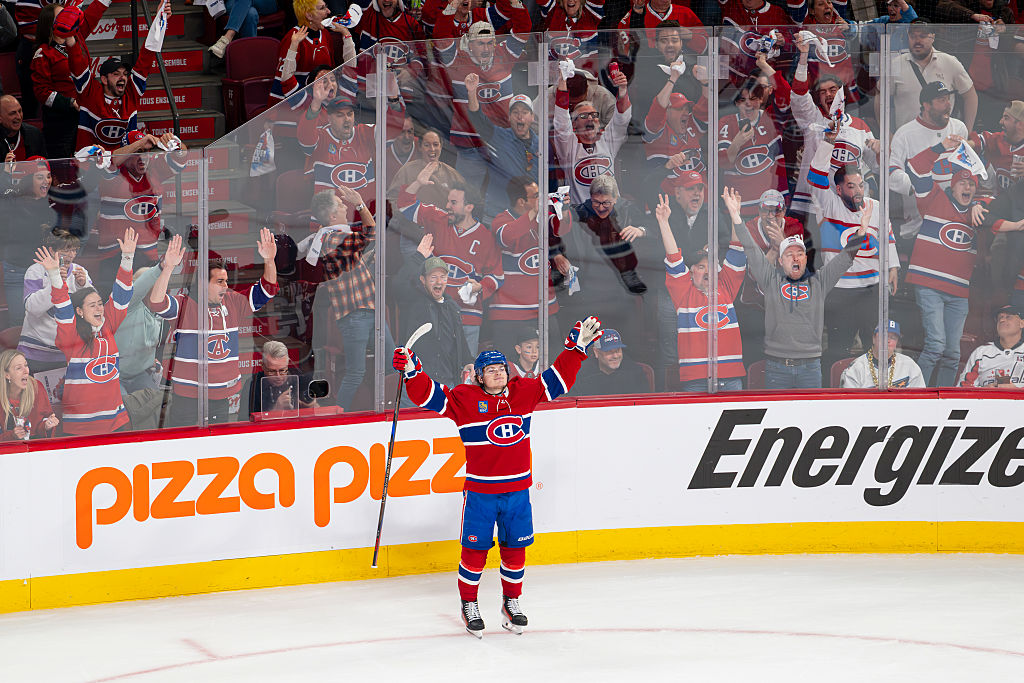It’s almost time for the 2022 World Cup. To help get you ready, we will be providing you with precious information about every team in the tournament. You can read all of our World Cup previews here.
Ecuador doesn't want to hear about the future. It's true that the national team's long-term forecast is unprecedentedly bright—this is, after all, a country short on soccer heritage and long on incredibly gifted young players who are in the early stages of what is sure to go down as a golden generation. But the team, comprised of many key players who are still in their teens and early 20s, is not coming to Qatar as tourists, as neophytes in search of experience that will serve them in World Cups to come. Ecuador is coming to win. Just take it from Moisés Caicedo, the 20-year-old crown jewel of this budding generation of gold: "It's my dream to make the best World Cup [in the country's history], so that the whole world talks about Ecuador, and I'm sure that we're going to do it."
Luckily for Caicedo and his compatriots, the bar to clear there isn't terribly high. Like every other FIFA member, Ecuador was invited to participate in the inaugural World Cup, hosted by Uruguay in 1930. The country's Minister of Social Security and Sports declined the offer, citing the costs of the trip. It took another 72 years for Ecuador to finally make its debut on soccer's biggest stage, after the country qualified for its first World Cup in 2002.
That history makes Ecuador one of the least successful soccer nations in South America, though La Tri has been trying to make up for lost time. Ecuador has become a much more regular presence at the World Cup in the 21st Century, qualifying for four of the six tournaments since 2000. The high-water mark came in 2006, when Ecuador made it out of its group and lost a tough Round of 16 knockout match against England, 1–0.
A mere four World Cup qualifications in history, and the ignoble status of being one of only two South American countries to never win the Copa América (the other being [Luis, look away . . .] Venezuela), means Ecuador can hardly compare in either past or present to the continent's true elites, Brazil and Argentina. But the momentum the country has been building these past couple decades, plus the deep vein of talent it has begun to really tap into, has Ecuador steadily climbing the rungs in South America's existing hierarchy. There's no reason why the 2022 World Cup can't be the tournament that, as Caicedo dreams, establishes Ecuador as a force to be reckoned with the world over.
As implied by those aforementioned 72 years in the desert, it's taken a long time and a lot of work to get Ecuador where it is today. The seeds of La Tri's success this millennium were planted towards the end of the prior one. In 1988, Ecuador hired Dusan Draskovic as the new manager of the national team. The Montenegrin coach brought his minimal knowledge of Spanish and even slighter understanding of Ecuadorian soccer to the job and promptly revolutionized the sport in the country. With a commitment to scouting and developing local talent across the country, and with European physical, tactical, and interpersonal training concepts, Draskovic completely revamped Ecuador's soccer methodology from the ground up.
It took time, but slowly Ecuadorian soccer started to improve. Draskovic, who managed the team for five years, didn't get to experience for himself the highest heights his revolution would bring about—though he coached Ecuador to a historic fourth-place finish in the 1993 Copa América it hosted, which was cause for plenty of celebration—but Ecuadorians almost universally hold him up as the father of modern soccer in the country. There is a direct line between Draskovic (who still lives in Ecuador), the 2002 World Cup, and everything that has come since.
It's fitting that Ecuador's next great leap forward in soccer, the one it's undergoing right now, has in some ways mirrored the one Draskovic brought about. The source for this can be found at the youth level. It's no coincidence that Ecuador has become a true hotbed of young talent in recent years. The country's domestic clubs are investing more and more time and money into finding and developing youngsters so as to maximize the best natural resource it has—its people—which it can then sell off to bigger clubs and leagues and earn more money that it can then reinvest in youth development, wash, rinse, repeat. No club better embodies this practice and its success as Independiente de Valle.
IDV is historically a minnow in Ecuadorian soccer. Founded in 1958 in a town on the outskirts of Quito, the club has spent most of its existence in the country's lower divisions. In 2007, IDV was teetering on bankruptcy. Local businessman Michel Deller and a group of his friends saw in the small club an opportunity, so they bought the club with plans to revitalize it. Nothing has been the same since.
Three years after Deller bought the club, IDV was promoted to the first division for the first time in its history. Upon reaching the top, the club really got to work on implementing its vision. IDV opened multiple youth training centers around the country in an effort to spot talent at the earliest stages, built a state-of-the-art youth academy, sought methodological advice from the European youth soccer experts who had embarked on a similar project with Qatar's Aspire Academy, and went all in on making IDV one of the preeminent talent factories in South America. The results have been astounding.
A huge percentage of Ecuador's most promising young talents, many of whom have already made their way to Europe, came through Independiente's youth ranks. This includes the two biggest stars of this Ecuadorian generation, Brighton midfielder Moisés Caicedo and Bayer Leverkusen central defender Piero Hincapié. IDV is churning out talent coveted by the world's biggest leagues, is getting rewarded handsomely for it in the form of transfer fees, and has rode this principle to unprecedented success on the pitch.
Independiente won the league title for the first time ever in 2021, has twice won the Copa Sudamericana (South America's equivalent to the Europa League) in 2019 and 2022, and even made it to (but lost in) the final of the Copa Libertadores (South America's Champions League). What Independiente has done to topple a domestic giant like Barcelona de Ecuador, and go toe-to-toe with the behemoths of the Argentine and Brazilian leagues, all while putting out young teams that are regularly raided every year, is simply incredible—sort of like an even more dramatic and sustained version of the Leicester City story.
Independiente de Valle isn't the only Ecuadorian club leading this renaissance. Barcelona de Ecuador is still one of the strongest clubs outside Brazil and Argentina, and Liga de Quito also does great work in youth development. It's a combination of all those factors that has Ecuador surpassing rivals like neighboring Colombia—a much larger country—and making its claim as the new kings of the tier of South American countries below the big two.
At club level and increasingly at the international level, Ecuador is growing prominence. For outsiders, it makes sense to think about what this means in the big picture. Just how far can Ecuador go, and how long will it take to get there? But, again, the members of the national team itself are less focused on the future. The question they want to answer is much more immediate and direct: Why not now?
Who Is Their Main Guy?
Moisés Caicedo is just 20 years old and is already one of the best midfielders in the Premier League. There's a reason he's earned the nickname "Moisex." Watching him play is quite the ... pleasurable experience.
Caicedo is the quintessential box-to-box midfielder. He has the ability to dominate every area of the pitch. His flashiest contributions are probably those he brings to the defensive side of the game. Caicedo has the quickness and endurance to sprint all over the pitch snuffing out attacks, primarily with his forceful tackling. He loves a lunging challenge, and his feet often look like golf ball retrievers the way he hooks them in between a ball carrier's legs and scoops out the ball. He's aggressive on that end but not reckless, as his savvy reading of the game lets him time his interventions for when they are most likely to succeed. It's his eagerness to battle for the ball and his proficiency at winning those battles that are the clearest signs that he is a player destined to contribute to a big club in the near future.
What's more, in contrast to many defense-minded midfielders who struggle in possession, Caicedo is almost just as good going forward as he is when defending. His game with the ball is similar to his game without it: aggressive, forceful, and smart. Right when he gets the ball, Caicedo wants to move the thing forward. He has plenty of technical ability which he can use to dribble past opponents, be it in big or tight spaces. He also is a refined passer who likes combination play, knows how to quickly and accurately progress the ball forward, and even has a nice stroke on his long passes.
If you press him, he can either roulette past you into open space or fizz a line-breaking pass up to an open teammate. If you defend deep, he can carry the ball forward, find the key pass to unlock the defense, and then charge into the box himself to present a scoring option. If you run at him with the ball at your feet, he can bowl you over, snatch the ball, and start booking it in the other direction, all in one fluid motion. If you try to send the ball over his head, he can run it down before your teammate can get to it. He is the total midfielder.
The question going forward for Caicedo is one of specialization. Clearly, we're dealing with an enormous hunk of pristine marble, and what comes next is trying to find what the statue inside looks like. His ability to further hone his skills and find a tactical environment that maximizes them will mark his ultimate ceiling as a player, whether it be as a rotation option at a big club or a starter at a big club (there's little question his future is at a big club). In the meantime, he'll have lots of room with Ecuador, where he is the unquestioned boss of the midfield, to show the world the kind of player he wants to be. I have a feeling it'll be something great.
Who Is Their Main Scoring Guy?
For all the justified talk about Ecuador's young guns, it's one of the few remaining members of the old guard who will be tasked with putting the ball in the net: 32-year-old striker Enner Valencia.
If you're a Premier League fan you probably remember Valencia from his time at West Ham and Everton almost a decade ago. Valencia was a respectable but not notably effective player then, and he remains so now. He's having a great season in Turkey right now, scoring 10 goals in nine matches for Fenerbahce, and he has long been a reliable source of goals for the national team.
Valencia was Ecuador's star back at the last World Cup they qualified for in 2014, where he scored three goals in the group stage. As the captain of the team, one of the few players with actual World Cup experience, and in the midst of a good run of form, Valencia could very well prove to be the one guiding Ecuador into the knockout rounds and maybe beyond with his goals.
Where's The Beef?
Which teams or players does Ecuador not like? Do Ecuador's players like each other? We investigate their potential enemies.
For better and for worse, Ecuador is mostly too irrelevant on the international stage to have engendered any real rivalries. Ecuador of course relishes the opportunity to beat powerhouses like Brazil and Argentina, and I imagine getting one over on Colombia would also bring the country joy, but Ecuador is way too small-time to really register on those other countries' radars.
However, there was some beef heading into this World Cup that is worth bringing up, involving Ecuadorian player Byron Castillo. For years, controversy has shrouded Castillo's international career. Specifically, there was concern that Castillo had actually been born in Colombia, not Ecuador, and thus did not qualify for Ecuadorian citizenship. Ecuador itself held Castillo out of international competition at youth and senior levels for years while it sought to get to the bottom of the matter. Eventually, after an internal investigation in 2021, Ecuadorian authorities validated Castillo's nationality and he began to play for the national team.
Castillo participated in eight matches in Ecuador's successful qualification for the World Cup in Qatar. After the country had sealed South America's fourth automatic qualification spot, Chile and Peru filed a joint petition with FIFA claiming to have evidence that Castillo was in fact born in Colombia, and that he had made false statements during the process of attaining Ecuadorian nationality, and thus he should be considered an ineligible player in all qualifying matches he participated in. The punishment for that would be Ecuador forfeiting those eight matches. Depending on how FIFA ruled, that would then either open up fifth-placed Peru to assume fourth-placed Ecuador's World Cup spot, or, if the points for those forfeited games were redistributed, would see Chile leapfrog Peru and Ecuador into fourth.
FIFA rejected Chile's claim and its appeal. Chile and Peru then appealed to the Court of Arbitration for Sport, asking for a final decision by Nov. 10, but it now seems unlikely that the CAS will act in time to affect the World Cup.
Kicking Ecuador out of the World Cup because of a potentially fishy passport (and the much more serious trafficking issues the Castillo case instantiates) would be a shame. And thankfully it doesn't seem like it'll happen. Instead, Ecuador will keep the spot it earned on the pitch, and Chile and Peru will be at home whining.
Most Likely To Go David Ospina Or James Rodríguez Mode
Who is Ecuador's best candidate for a breakout performance that earns them a career-changing transfer? Might this potential post-tournament transfer go well, like when Colombia's James Rodríguez went to Real Madrid after starring in the 2014 World Cup? Or could it go poorly, like when Colombia's David Ospina went to Arsenal after starring in the 2014 World Cup?
As a team with so much young talent, you could make the case for about a dozen Ecuadorians here. I will stick with one of those with the highest ceiling, Piero Hincapié.
Hincapié is one of those central defenders who really stretches the meaning of the "defender" part. Yes, the 20-year-old is a good tackler and a fast runner, but his most impressive attributes are those he flexes with the ball. A goal-scoring winger in his younger days, Hincapié loves to push forward from the back line whenever he can. He has a great deep cross on him, knows how to make the most of his jaunts into midfield by luring out opponents and releasing the ball into the space they've vacated, and has such an accurate left foot that he can even score from free kicks.
Mesmerising from Esmeraldas' finest export. 🏖️🇪🇨 @PieroHincapie
— Bundesliga English (@Bundesliga_EN) October 2, 2022
Ready for World Cup in 2022, the man from the Northwest coast of Ecuador has found amor in the #Bundesliga for @Bayer04_en. ❤️😊✨ pic.twitter.com/3lN8r99Zp7
Hincapié is a sort of Jules Koundé-type talent, and that comfort on the ball and his left-footedness make him the kind of defender big clubs are obsessed with. Attacking defenders are highly coveted in the modern game, but they also can be exposed when their on-ball skills can't compensate for their defensive shortcomings. For that reason, a player like Hincapié can be high-reward but also high-risk.
In just a year's time, Hincapié went from the Independiente de Valle first team, to Argentina's top division, all the way to the Bundesliga with Bayer Leverkusen. It would shock no one if he balls in Qatar and finds himself on the other end of €50 million bids from some of the biggest clubs in the world within another year.
David Ospina Probability Score: 21.2
James Rodríguez Probability Score: 74.8
Fun Geographical Fact
Ecuador is the world's most biodiverse nation per square mile. This is in part because of the extremely varied geographic regions within the relatively small country's borders, which includes the Pacific Coast, the Amazon jungle, and the Andes Mountains. Not only that, Ecuador is also home to the Galapagos Islands some 600 miles off the coast. Very cool!
Good Flag Or Bad Flag?

Fantastic flag, the best of the Ecuador–Colombia–Venezuela basic color scheme.
Good Anthem Or Bad Anthem?
A jaunty little number, I like it.
Notable Moment In World Cup History
The 2006 World Cup, hosted by Germany, was Ecuador's second-consecutive and second-ever World Cup appearance, and remains the one they performed best in. The highlight of that tournament was a 3–0 beatdown of Costa Rica. La Tri had won its first game of the group stage, against Poland, and knew that a win against Costa Rica would mean it would solidify its place in the knockout round. As Ecuador piled on the goals, the match took on more and more of a party feel, culminating with Iván Kaviedes's match-killing third strike.
After scoring, Kaviedes pulled a yellow Spider-Man mask out from his shorts and put it on his head. The celebration was an homage to Ecuadorian striker Otilino Tenorio, famous for his Spider-Man mask celebrations, who had died the year prior in an auto accident.
How Can They Win The World Cup?
Ecuador's chances at this World Cup will most likely be marked right at the beginning. La Tri faces Qatar in the first match of the whole tournament. A win there will set Ecuador up nicely for a run to the knockout rounds in a tough but escapable group.
Should Ecuador open the tournament with a win, the team will then need to rely on performances from players like Moisés Caicedo, Piero Hincapié, and Enner Valencia to keep things tight at the back and take advantage of enough counter attack chances to get some crucial wins. With big performances from all three of those players—plus a solid helping of literal black magic that rigs the tournament in favor of South America, but at the same time shuns Brazil and Argentina due to the controlling spirits' feeling that Neymar and Lionel Messi have become too Europeanized after spending so long on the old continent—and I really do think Ecuador could win the World Cup.






